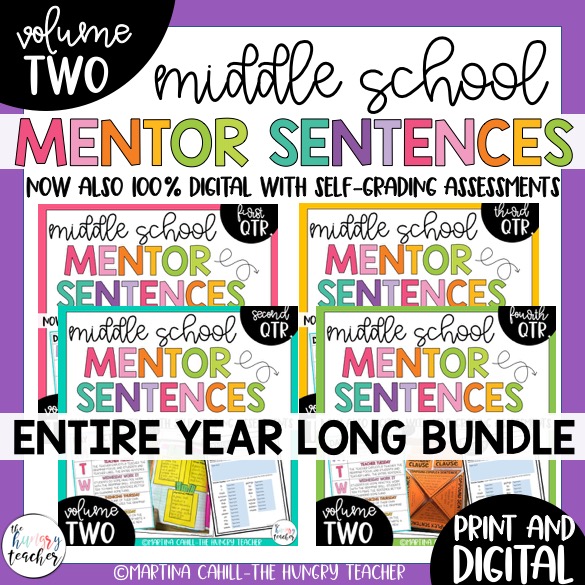hey friend!
I'm Martina.
I provide practical, time-saving strategies that actually work—so you can engage your students, teach effectively, and reclaim your time from the exhausting planning-grading cycle.
Browse Our ELA Resources
Middle School Mentor Sentences to Teach Grammar | Volume Two |
My Middle School Mentor Sentences to Teach Grammar Volume Two is done and now completely digital in Google Slides and Google Forms and I wanted to outline what’s included. There have been huge updates to the assessments. They are now self-grading in Google Forms, plus all other components are digital in slides. There digital grammar interactive notebooks lessons, daily grammar editing and improving work, and the display slides.
TEACHERS AND MENTOR SENTENCES
When it come to Mentor Sentences, I’ve realized that most teachers fall into the following categories:
- I have no idea what mentor sentences are, but I am intrigued now.
- I have seen mentor sentences, but didn’t really know where to start.
- Most ideas I’ve seen seem to be for elementary students, and I want to implement them with my middle school students.
I’m a big believer in scaffolded instruction to cover tough concepts like 7th and 8th grade grammar skills (which I have to Google on the daily).
With these in mind, I realized I really needed to make something that was ready to go for my students every week. Something much like the resources that I saw for elementary students.
COMMON CORE LANGUAGE STANDARDS AND YOUNG ADULTS TEXTS
Here is an outline of all the grammar skills and texts that are used in the Volume Two of my Mentor Sentences:
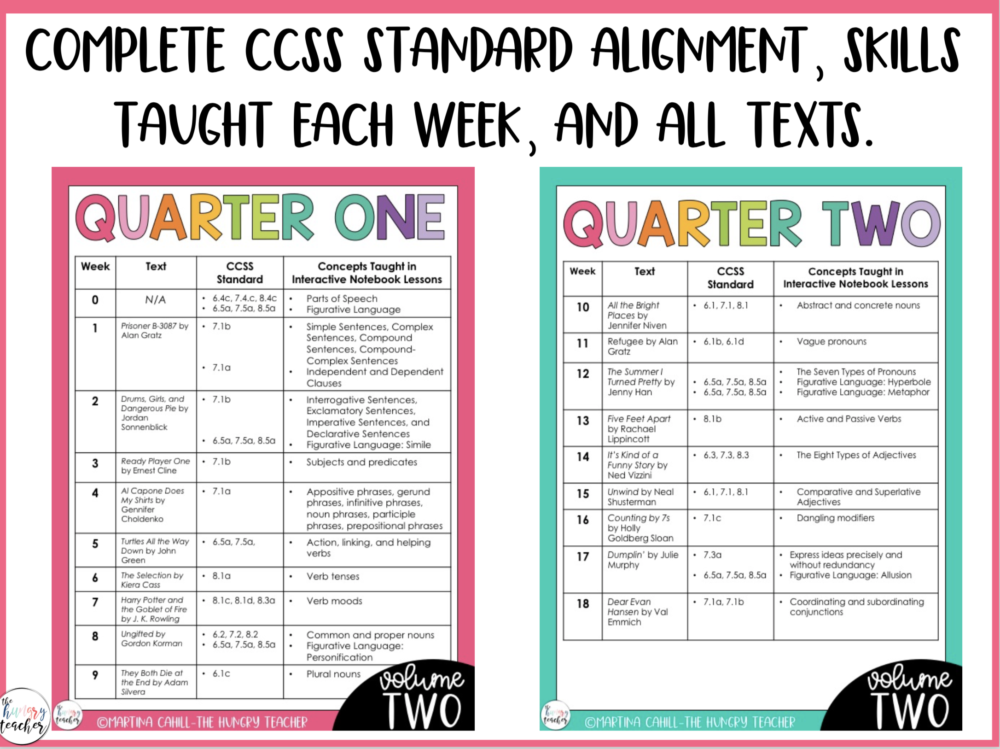
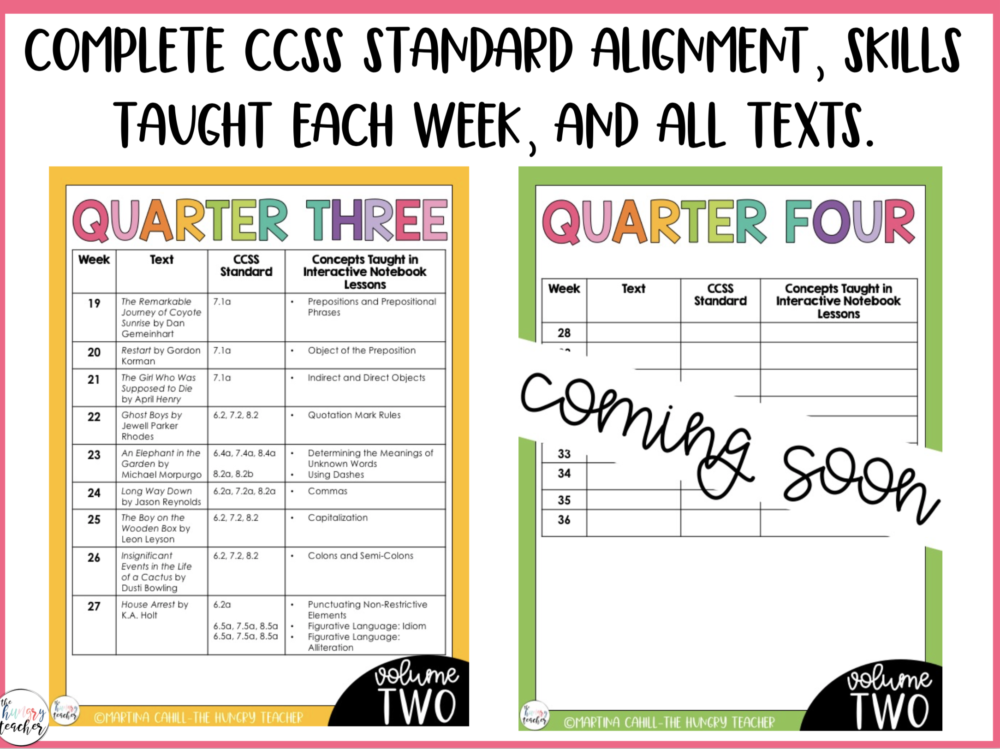
MENTOR SENTENCES TWO FREE WEEKS
I will get into all the details below, but if you would like to try a few weeks for free, make sure you sign up for The Hungry Teacher Newsletter. Two free weeks sent to your inbox!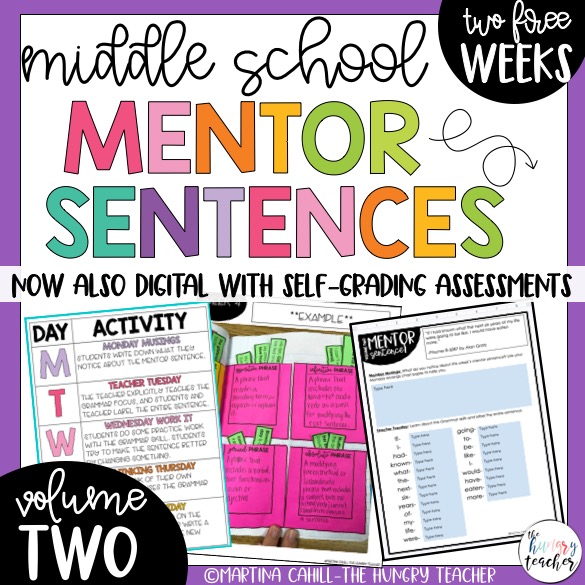
WHAT ARE MENTOR SENTENCES?
From what I have seen about mentor sentences, most follow a structure where students make their own noticings about the mentor sentence for the week, on Mondays. After that, the rest of the week is spent focusing on working with the sentence and grammar/language skills for the rest of the week.
If you’re low on copies or just know kids won’t look at their reference sheet anyway (ha!) Then I also have made a chart paper for student reference that hangs in my classroom all year long.
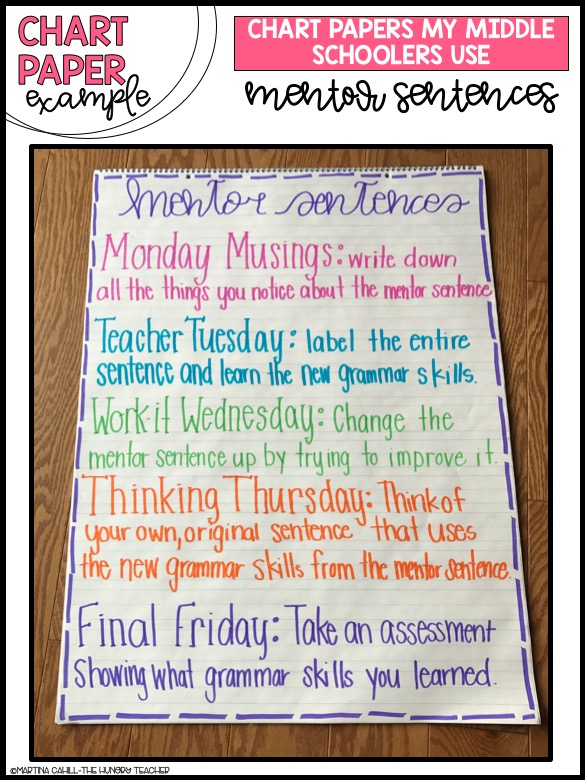
MONDAY MUSINGS: WHAT CAN STUDENTS NOTICE ABOUT THE MENTOR SENTENCE?
In order to prevent students from saying, “I don’t notice anything,” I created the following Monday Musings sheets for students to reference each Monday. I laminated some for each of my table groups and taped them to a desk. I also made chart papers to make sure they have no excuses for what they need to do.
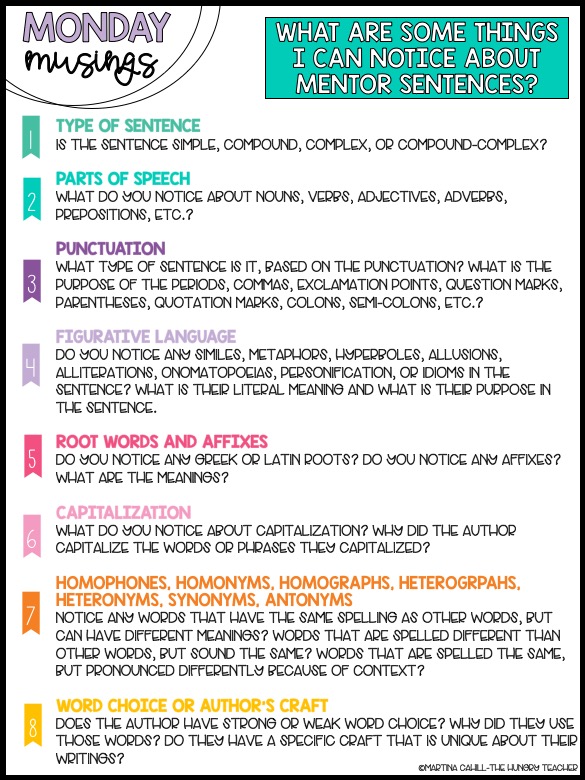

DIFFERENT STRUCTURES FOR DIFFERENT STUDENTS
As a teacher who has gone from 5th to 6th and then to 7th and 8th grade, I’ve realized that my needs for my students change each time I move grade levels. So even if I use the same concepts or structures in each of the grades, I often need to make adjustments based on the challenge I need my students to have or the amount of time I have in my class periods.
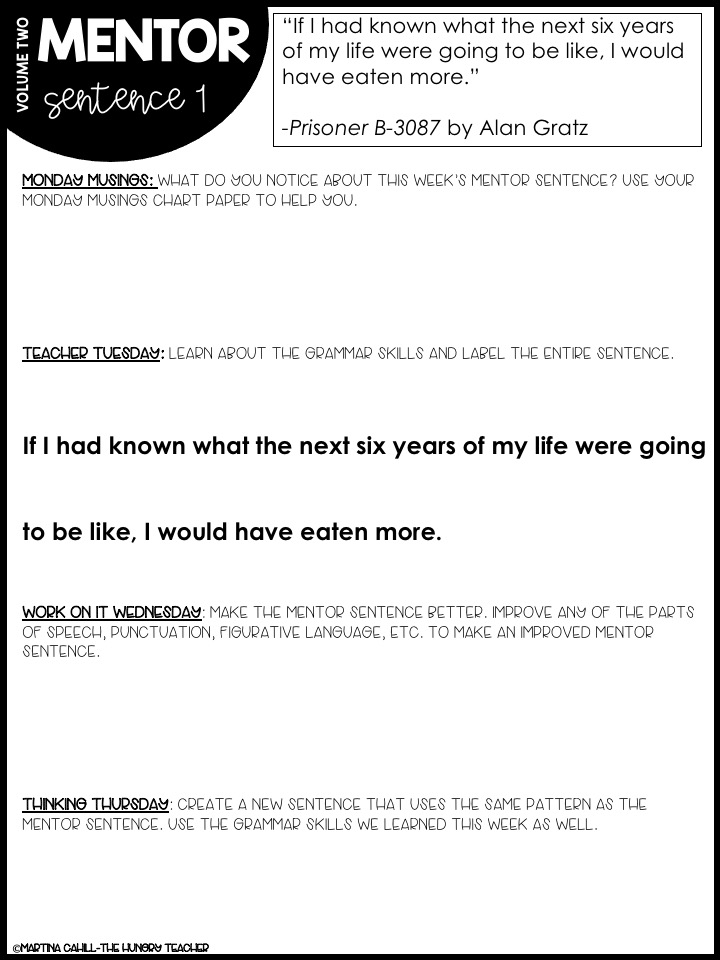
DIFFERENT STRUCTURES FOR DIFFERENT STUDENTS
The following is the option I use in my 7th and 8th grade English classroom. We use A TON of interactive notebooks so by about week two of school, my kids are masters at cutting and gluing. There are 8 sentences per page, so it only take me about 3 copies for each of my classes, and most importantly, it ensures that my students don’t copy the sentence down incorrectly because #icanteven.
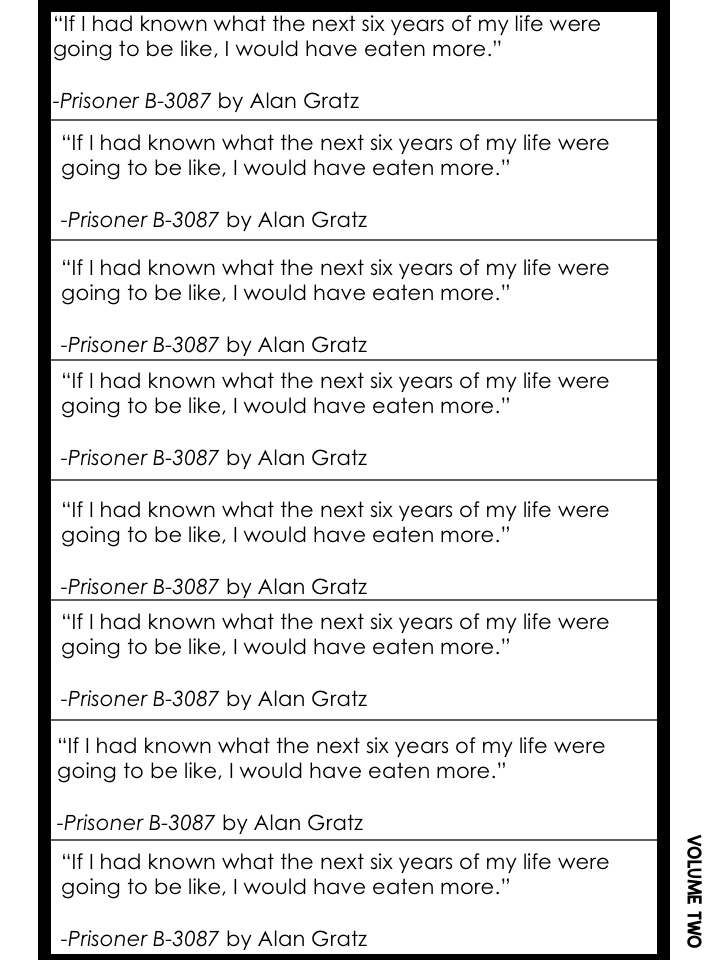
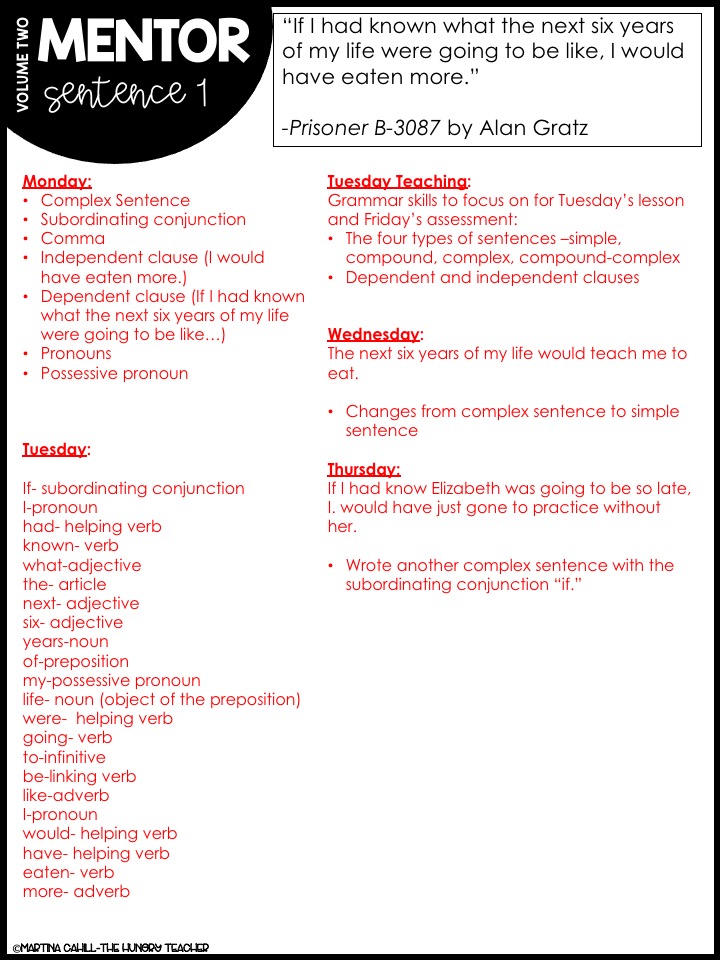
MIDDLE SCHOOL MENTOR SENTENCES STUDENT WORKSHEET EXAMPLES
These are some examples of what they might look like in your classroom.
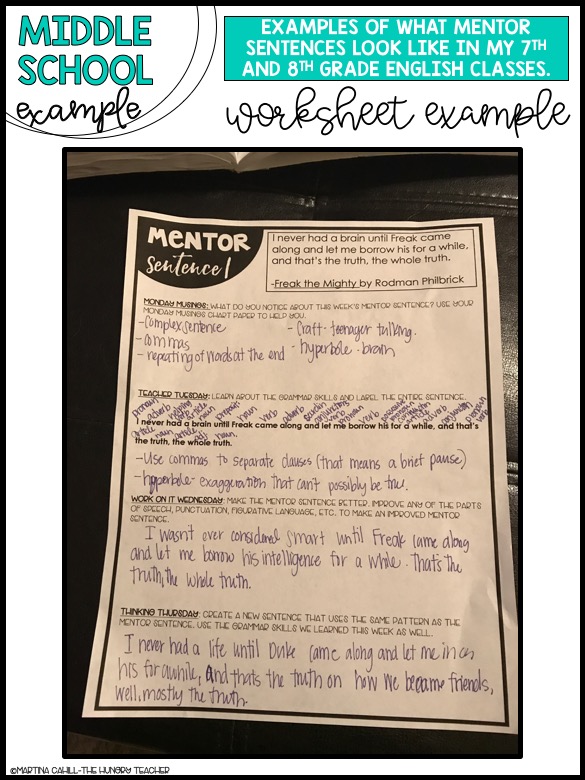
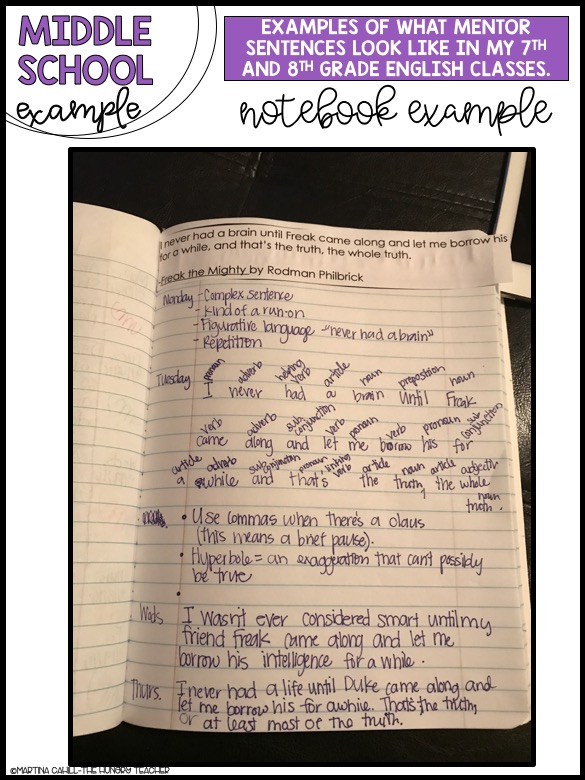
MIDDLE SCHOOL MENTOR SENTENCES DISPLAY SLIDES
This is the final option I have for you to use (for those of you who have absolutely no copies and/or want something more digital). These are just slides to project. The only issue with these is that students might copy the mentor sentences down incorrectly, but other than that, these are great option as well.
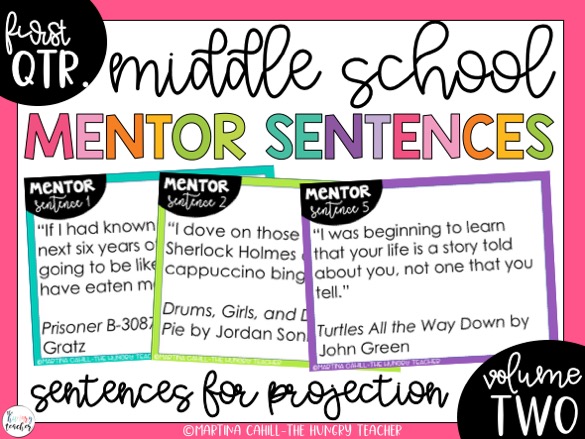
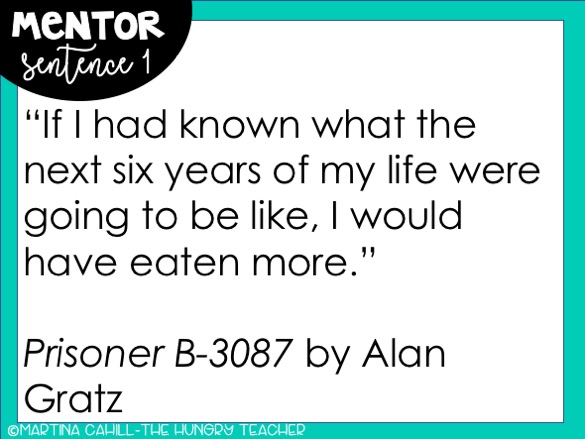
MIDDLE SCHOOL MENTOR SENTENCES GRAMMAR INTERACTIVE NOTEBOOK LESSONS
I had already tried to outline the Tuesday lessons to the assessments that I created for Fridays. I realized I need to have much more explicit instruction for students to learn the grammar skills. Because of that, I have created simple interactive notebook lessons for students and teachers to use each Tuesday. They are a little overloaded in the beginning, but they slow down as the students learn more skills.
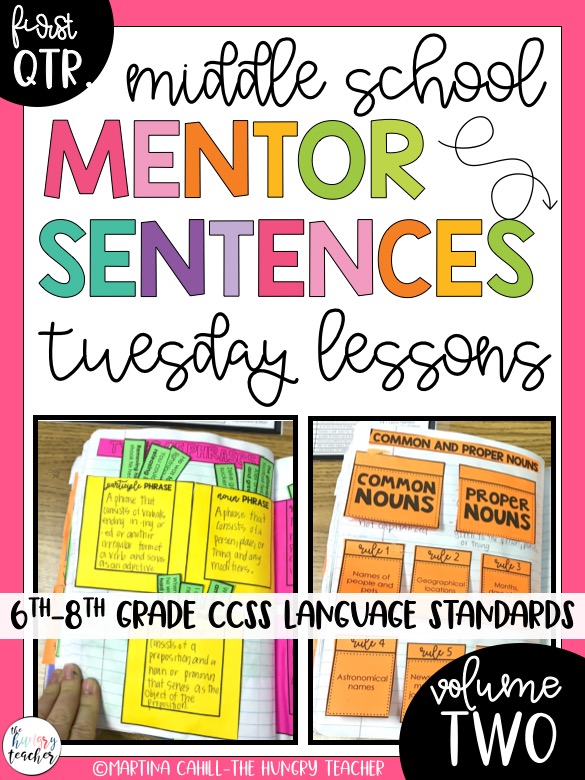
Here is an example of lessons based on the mentor sentence for week one. The first week has a few lessons, but it’s something that the students will need to notice each week.

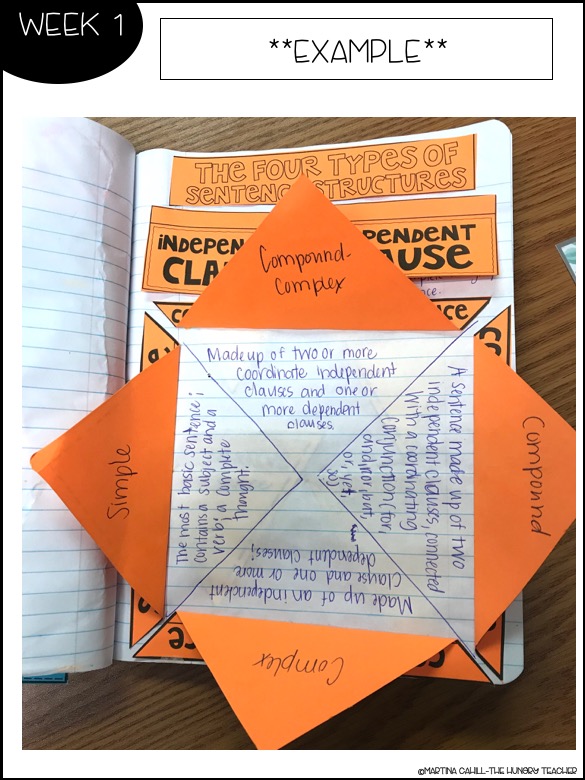

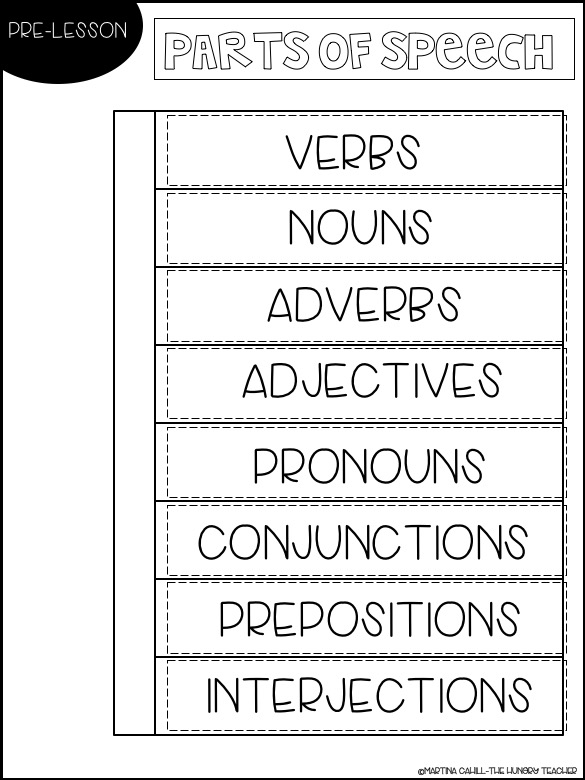
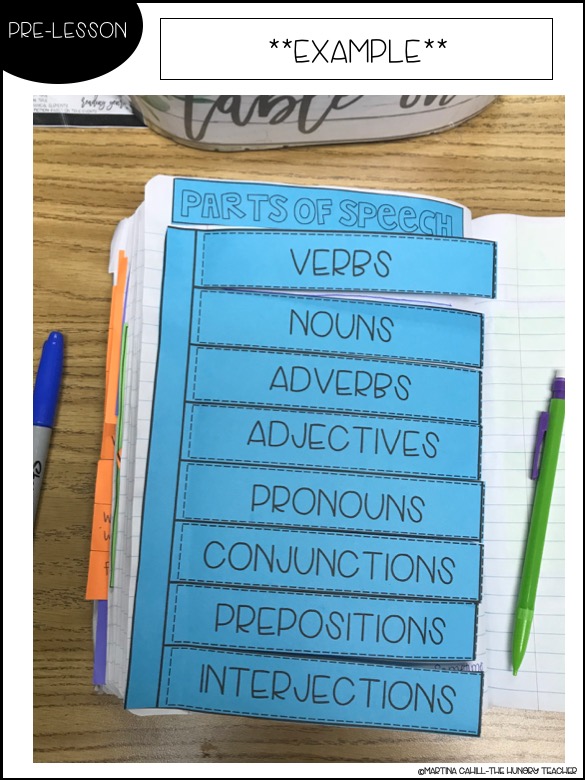
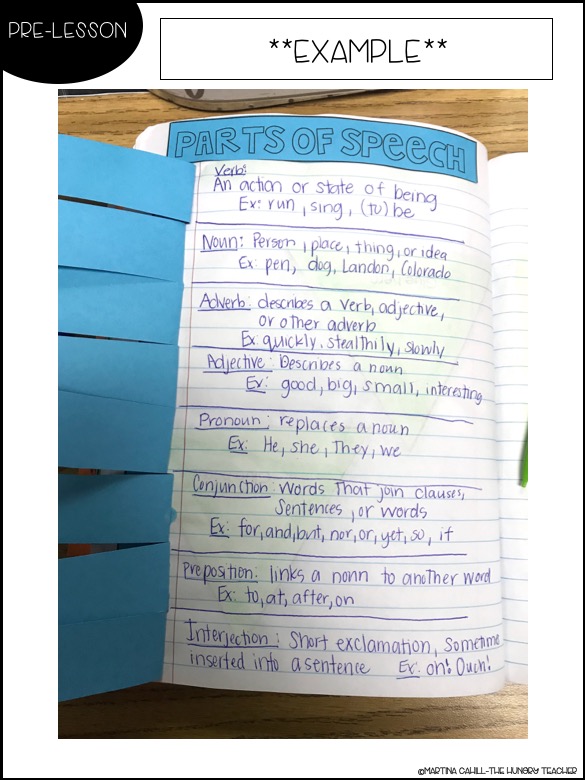
MIDDLE SCHOOL MENTOR SENTENCES WEEKLY GRAMMAR SKILL ASSESSMENTS
I have also created assessments that students will do each Friday. The assessments are based on the mentor sentences and the pre-selected language skills and lessons that are taught on Tuesdays. Each assessment comes with answer keys. Even if you didn’t use the Tuesday lessons, you could still look at the assessments. Then you can make sure students have an understanding of the skills that will be assessed on Friday.
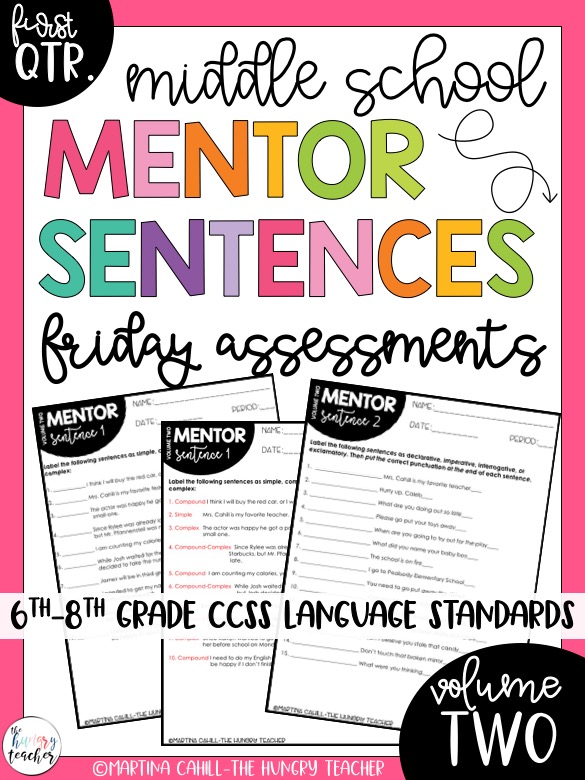

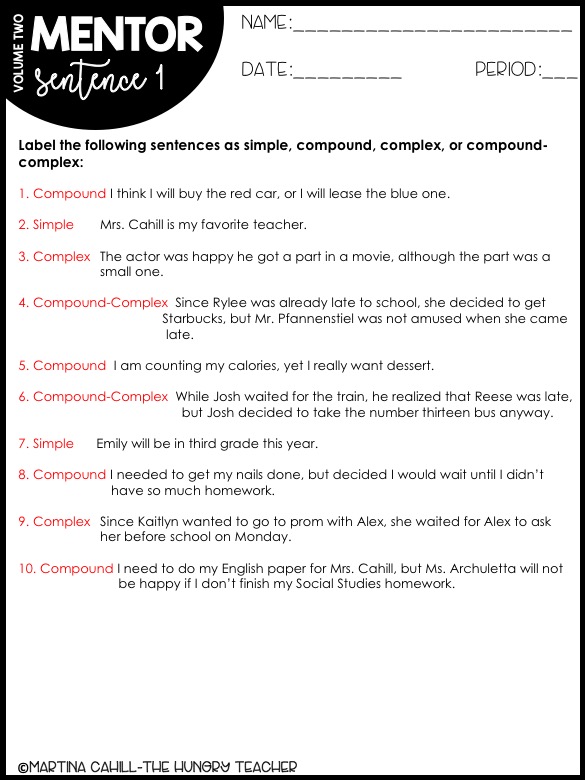
MENTOR SENTENCES MONDAY SAVING BUNDLES
- Middle School Mentor Sentences Volume I has been done and updated repeatedly for the last three years.
- Middle School Mentor Sentences Volume II is currently a growing bundle but it is almost done!
- Volume II is honesty much better suited for 6th or 7th grade, especially if students really struggle. I had learned a lot and made huge improvements the second time around.
- Volume I is still great, but is definitely the more difficult of the two. I use this one with my eighth graders.
- There is also a bundle with both Volumes for those of you who teach multiple middle school ELA grade levels.
Want a sneak peek at teaching The Hungry Teacher way—with support, structure, and strategy?
When you join the waitlist for The Hungry Teacher’s Hub membership, you get three free classroom-ready resources: a theme unit, an expository writing unit, and a grammar unit introducing mentor sentences. Plus, you’ll get immediate access to a selection of exclusives from the Hub, including editable sub plans, pacing guides, and more.
No strings attached. Just resources you can use right now—and a heads-up when the Hub opens.
3 Free Middle School ELA Units—yours to keep!
JOIN THE WAITLIST + A FREE GIFT
Where to next, line leader?
Welcome to The Hungry Teacher! We create resources that are easy to use, practical, and get results. Teach with confidence—and make it home before dinner.
xo, the hungry teacher



